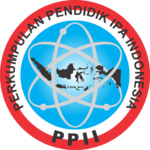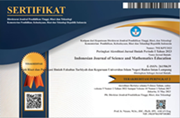Analysis of The Causes of Negligence of Homework in Elementary School Students in Iraq
Abstract
In this research, one of the main problems that students face in school is neglecting assignments and homework. This information was found to be a fundamental cause affecting the whole learning process, such as in science lessons. This research aims to raise awareness of task neglect among teachers, students, and their families and raise the level of students by teaching them how to prioritize homework. The study was conducted in several elementary schools in the province of Sulaymaniyah in the Iraqi Kurdistan Region, using a descriptive method on cadastral forms related to homework neglect. There are 10, 5, and 9 questions related to teachers, families, and students. The study results show that teachers and families are the most influential factors in student performance in completing homework. It is suggested that in the future, for further research on the same subject, a technique can be applied to reduce the level of neglect of homework in students.
Keywords
Full Text:
PDFReferences
T. D. Griffin, M. K. Mielicki, and J. Wiley, “Improving Students’ Metacomprehension Accuracy,” Cambridge Handb. Cogn. Educ., pp. 619–646, 2019.
C. Vatterott, “Making Homework Central to Learning.,” Educ. Leadersh., vol. 69, no. 3, pp. 60–64, 2011.
F. Coulter, “Homework: A Neglected Research Area,” Br. Educ. Res. J., vol. 5, no. 1, pp. 21–33, 1979.
U. Trautwein, “The Homework–Achievement Relation Reconsidered: Differentiating Homework Time, Homework Frequency, and Homework Effort,” Learn. Instr., vol. 17, no. 3, pp. 372–388, 2007.
S. H. H. Alshatri, K. Wakil, and R. Bakhtyar, “The difficulties of theoretical and applied learning for mathematics subject in primary schools,” Int. e-Journal Educ. Stud., vol. 3, no. 6, pp. 141–149, 2019.
S. H. H. Alshatri, K. Wakil, K. Jamal, and R. Bakhtyar, “Teaching Aids Effectiveness in Learning Mathematics,” Int. J. Educ. Res. Rev., vol. 4, no. 3, pp. 448–453, 2019, doi: 10.24331/ijere.573949.
U. Trautwein, O. Köller, B. Schmitz, and J. Baumert, “Do Homework Assignments Enhance Achievement? A Multilevel Analysis in 7th-Grade Mathematics,” Contemp. Educ. Psychol., vol. 27, no. 1, pp. 26–50, 2002.
H. M. Cummings and E. A. Vandewater, “Relation of Adolescent Video Game Play to Time Spent in Other Activities,” Arch. Pediatr. Adolesc. Med., vol. 161, no. 7, pp. 684–689, 2007.
J. Oggins and J. Sammis, “Notions of Video Game Addiction and Their Relation to Self-Reported Addiction among Players of World of Warcraft,” Int. J. Ment. Health Addict., vol. 10, no. 2, pp. 210–230, 2012.
I. T. Cömert and N. Ziyalar, “The Association Between Internet Addiction and Substance Use Among 18− 28-Year-Old University Students in Istanbul,” Psychol. Res. Ekim, vol. 2, no. 10, p. 615, 2012.
H. Cooper, J. J. Lindsay, and B. Nye, “Homework in the Home: How Student, Family, and Parenting-Style Differences Relate to the Homework Process,” Contemp. Educ. Psychol., vol. 25, no. 4, pp. 464–487, 2000.
L. Corno and J. Xu, “Homework as the Job of Childhood,” Theory Pract., vol. 43, no. 3, pp. 227–233, 2004.
DOI: http://dx.doi.org/10.24042/ijsme.v6i2.16087
Refbacks
- There are currently no refbacks.
Copyright (c) 2023 Unit Riset dan Publikasi Ilmiah FTK UIN Raden Intan Lampung

This work is licensed under a Creative Commons Attribution-ShareAlike 4.0 International License.

Indonesian Journal of Science and Mathematics Education is licensed under a Creative Commons Attribution-ShareAlike 4.0 International License.





